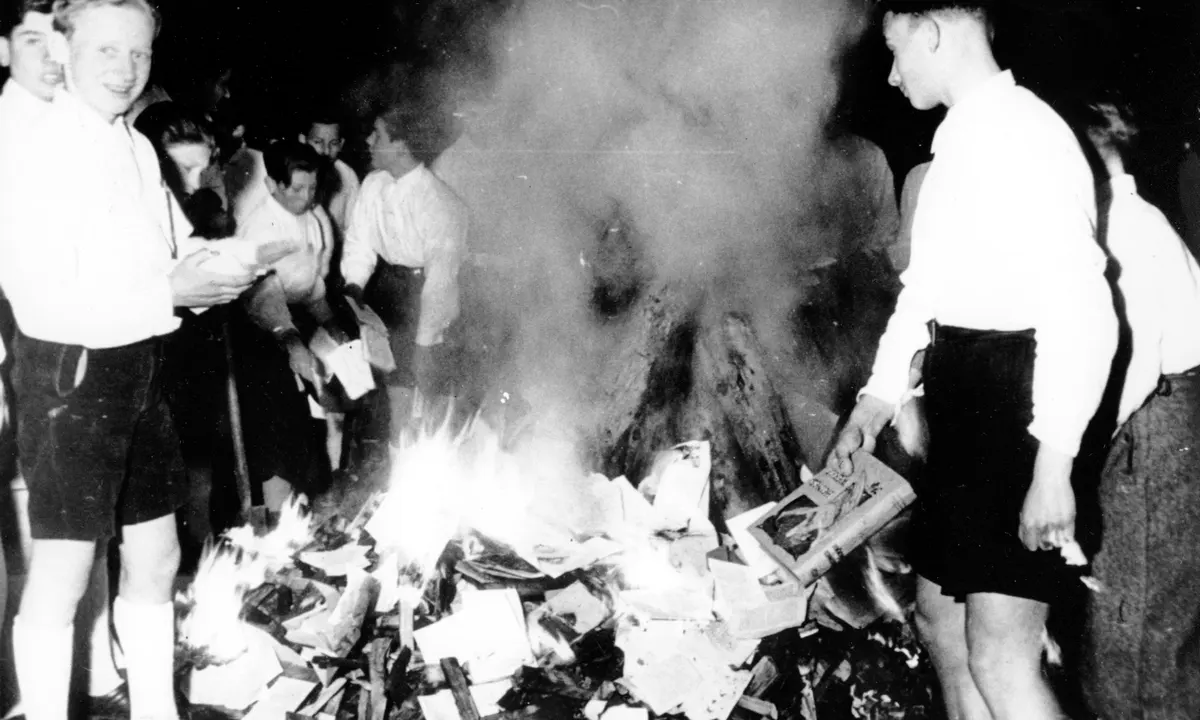
There is a long history of anti-Semitism, such as that we studied in the Broken Strings unit study. Jews had long been persecuted against for their religious beliefs, and at times were forced to convert to another religion. Many of them were money lenders (due to restrictions put into place regarding what jobs they were allowed to have), and when the economy of Germany took a nosedive, this made Jews an easy scapegoat. In his 1925 book, Mein Kampf, Hitler accused Jews of deliberately attempting to pollute the pure German gene pool, of robbing Aryans, and of destroying the nation’s social fabric.
We study the Holocaust and its atrocities more in depth in Under the Donim Tree. You may also pick up the entire bundle of Jewish Studies through Literature - ten units.
Banned Books in Nazi Germany

Censorship & Propaganda
When Nazis first came to power, the German constitution guaranteed freedoms of speech and the press, but those rights were eroded over the next couple of years. This eventually destroyed the German democracy. It was illegal to criticize the government, and even illegal to tell a joke about Hitler!
In spite of this erosion of their rights, it was imperative for the people to support Nazi ideas, if they were to accomplish their political goals. To get the people on board, they seized control of newspapers, magazines, radio shows, books, music, movies, and other art forms. They did this by banning books, controlling what allowed to be published in print or on air, and even censoring letters home from soldiers. This helped to damper the flow of negative information.
You may also be interested in We Were There at the Battle of Britain, Breaking Stalin's Nose, or Animal Farm
Our spine read for this unit is...
- The Book Thief
- It is 1939. Nazi Germany. The country is holding its breath. Death has never been busier, and will become busier still. Liesel Meminger is a foster girl living outside of Munich, who scratches out a meager existence for herself by stealing when she encounters something she can’t resist–books. With the help of her accordion-playing foster father, she learns to read and shares her stolen books with her neighbors during bombing raids as well as with the Jewish man hidden in her basement. In superbly crafted writing that burns with intensity, award-winning author Markus Zusak, author of I Am the Messenger, has given us one of the most enduring stories of our time.
Includes:
- The Book Thief
- We Were There at the Battle of Britain
- Number the Stars
- The Winged Watchmen
- We Were There at Pearl Harbor
- We Were There at the Battle of Bataan
- Island War
- Red Stars
- The Night Witches
- Mare’s War
- We Were There at the Normandy Invasion
- Code Talkers
- We Were There at the Battle of the Bulge
- The Light Between Us
- We Were There at the Open of the Atomic Era
- A Merry 1940s Christmas
Product samples:




No comments:
Post a Comment
Note: Only a member of this blog may post a comment.